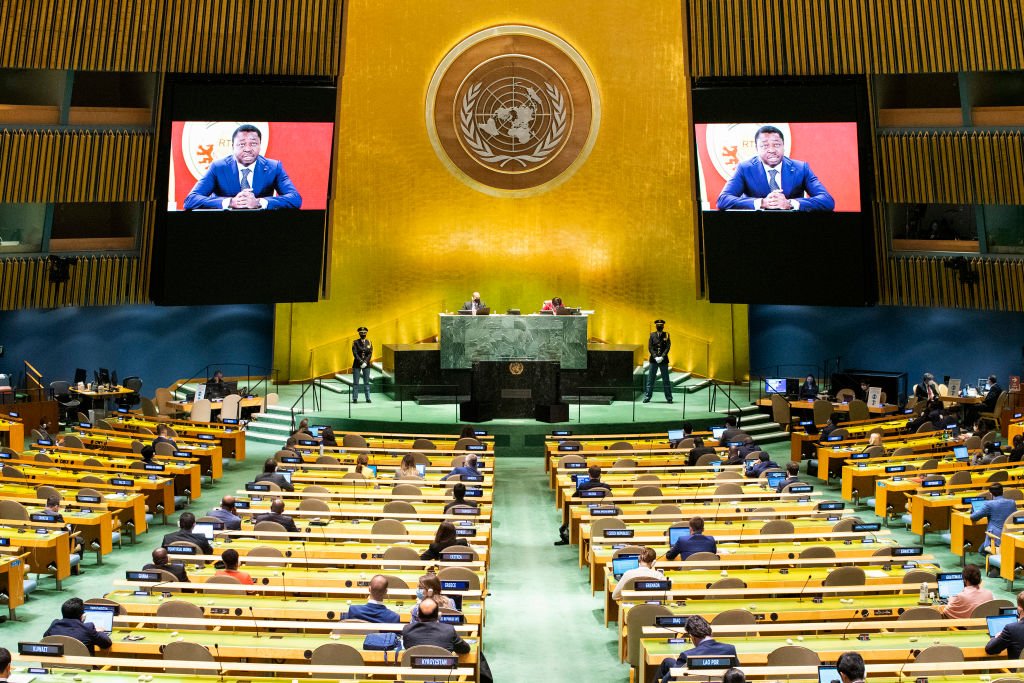Amnesty International has uncovered a targeted digital attack campaign against a human rights defender in Togo. Their investigation found that spyware-loaded emails and fake apps could access device’s camera and microphone, steal files, and read messages. https://t.co/UvYge5qAnn
— The Tor Project (@torproject) October 12, 2021
Expression
Journalists, activists potentially targeted with spyware
An investigation in July 2021 into a massive leak of 50,000 phone numbers and potential surveillance targets revealed more than 300 Togolese numbers and potential targets, including journalists, HRDs and members of the political opposition. Among those potential targets figure HRD David Ekoué Dosseh of social movement Togo Debout, investigative journalist Carlos Ketohou, who was detained for four days in December 2020-January 2021, editor of media outlet l'Alternative Ferdinand Ayité, who was together with his outlet sentenced to pay a fine and damages for defamation over a embezzlement story in November 2020, and freelance journalist Luc Abaki.
The Committee to Protect Journalists (CPJ), who spoke to the three above mentioned journalists, highlighted the mental health impact of the surveillance. Ferdinand Ayité told CPJ:
“There is a huge psychological impact of knowing that someone in this country is taking control of your phone, violating your privacy. I will be even more careful and vigilant; you never know where the fatal blow will come from. I am a journalist on borrowed time.”
The Pegasus Project is a collaboration of more than 80 journalists from 17 media outlets in 10 countries, coordinated by Forbidden Stories with technical support by Amnesty International (AI). The latter conducted forensic tests on mobile phones to identify traces of Pegasus, spyware developed by the Israeli company NSO Group.
More recently, in October 2021, AI revealed that a HRD in Togo, who wishes to remain anonymous for security reasons, was targeted by spyware by the Donot Team hacker group. The HRD experienced repeated attacks over WhatsApp and email in an attempt to trick the activist into installing a malicious application masqueraded as a secure chat application, which was a piece of Android spyware designed to extract information stored on the activist's phone and would have allowed the perpetrators to access the phone's camera and microphone.
As reported previously on the Monitor, an investigation by the newspapers The Guardian and Le Monde in 2020 had already revealed that the phones of at least six Togolese government critics were targeted by the spyware Pegasus. Those targeted include opposition members and members of the clergy: the Catholic Bishop Benoît Alowonou, the priest Pierre Chanel Affognon and opposition affiliates Raymond Houndjo and Elliott Ohin.
Togo: le journal «The Guardian» suspendu pour quatre mois https://t.co/CpYbXTnhnL pic.twitter.com/yqWe82pNNl
— RFI Afrique (@RFIAfrique) October 13, 2021
Media outlet suspended for four months
On 11th October 2021, Togo's national media regulator Haute autorité de l’audiovisuel et de la communication (HAAC) suspended Togolese media outlet The Guardian for a period of four months, and suspended the press card of the outlet's editor, Ambroise Yawo Kpondjo. The latter did not attend to a summons by the HAAC over articles alleging cases of COVID-19 vaccinations of underage students, which contains false information, according to HAAC. The journalist could not enter the premises of HAAC because he does not have a COVID-19 health pass nor has the means to pay for a PCR test.
The Patronat de la presse togolaise (PPT; Togolese Press Employers) denounced the decision and called it a "an unfair decision taken with such lightness in a country where no law has, for the moment, made vaccination compulsory".
Numerous media outlets have been suspended by HAAC in the past few years, including the bi-monthly L'Alternative in February 2021 for a period of four months on accusations of publishing false information following a complaint by the Minister of Town Planning, Housing and Land Reform. In January 2021, the HAAC ordered the newspaper l’Indépendant Express to cease all operations - online and print - and requested the Court of First Instance of Lomé to withdraw the newspaper's operating licence.
